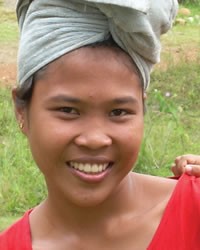Rawas in Indonesia

Photo Source:
Copyrighted © 2026
Anonymous All rights reserved. Used with permission |
Send Joshua Project a map of this people group.
|
| People Name: | Rawas |
| Country: | Indonesia |
| 10/40 Window: | Yes |
| Population: | 240,000 |
| World Population: | 240,000 |
| Primary Language: | Musi |
| Primary Religion: | Islam |
| Christian Adherents: | 0.00 % |
| Evangelicals: | 0.00 % |
| Scripture: | Portions |
| Ministry Resources: | No |
| Jesus Film: | Yes |
| Audio Recordings: | Yes |
| People Cluster: | Musi of Sumatra |
| Affinity Bloc: | Malay Peoples |
| Progress Level: |
|
Introduction
The main sources of income for the Rawas come from rubber and palm oil plantations. They are self-sufficient in producing their food supply. The Rawas are highly motivated in pursuing their economic needs and many work until they are old. The Rawas strongly value honesty in their work and this can be seen in how they earn their money. Honesty is a community value and therefore the Rawas area is very safe. Their relationships with outsiders in their area are very good. The indigenous residents or village people are known as people who don't bother much with the affairs of transmigrants (Indonesians from other islands).
Ministry Obstacles
Without any known Christ followers in their community, the Rawas must hear the gospel from those outside their community.
Outreach Ideas
Pray for the Followers of Christ
Pray for the Entire People Group
Ask God to send loving and dedicated workers to the Rawas.
Ask God to give their elders dreams and visions that will open their hearts to Jesus Christ.
Pray for the Rawas to experience and embrace the glory of the Lord.